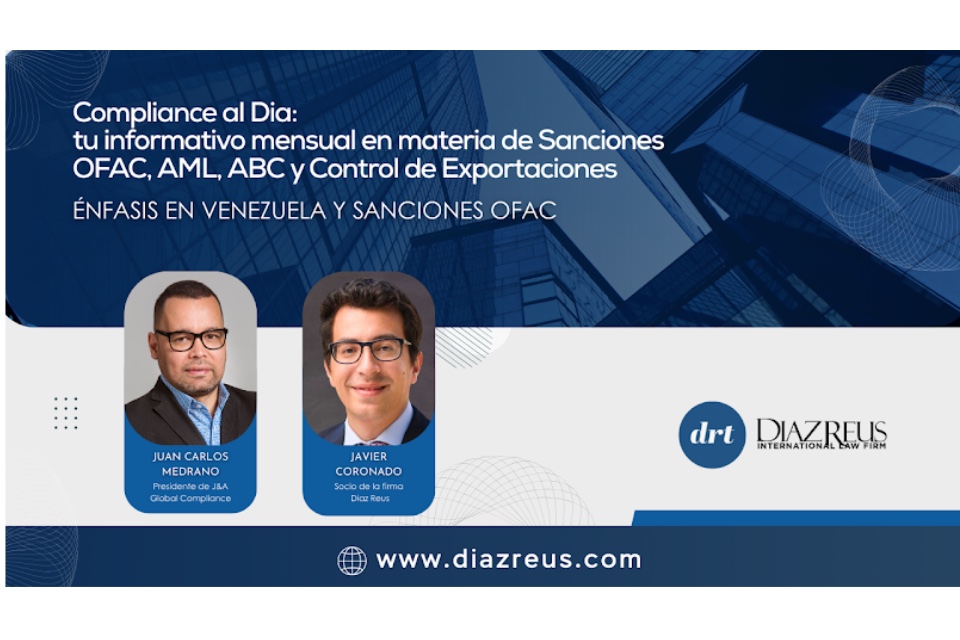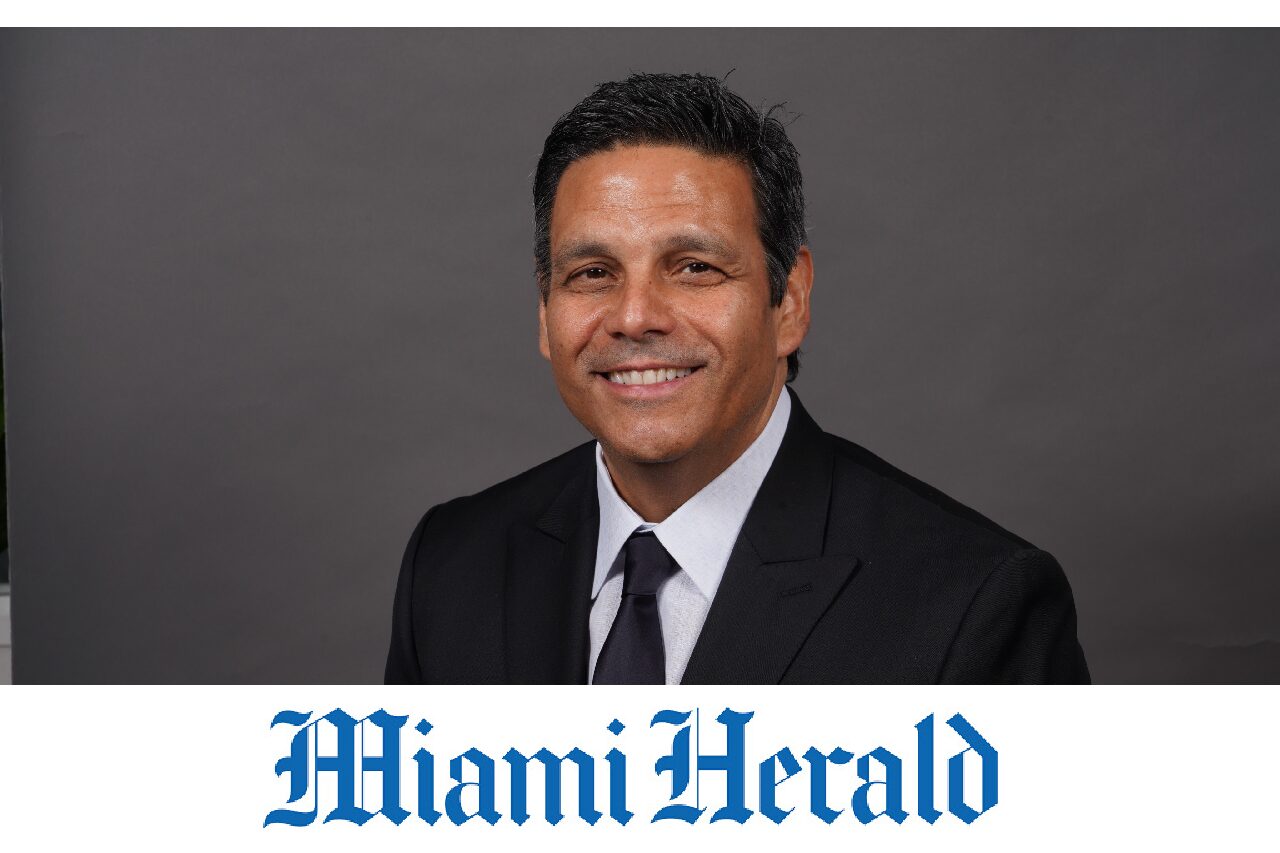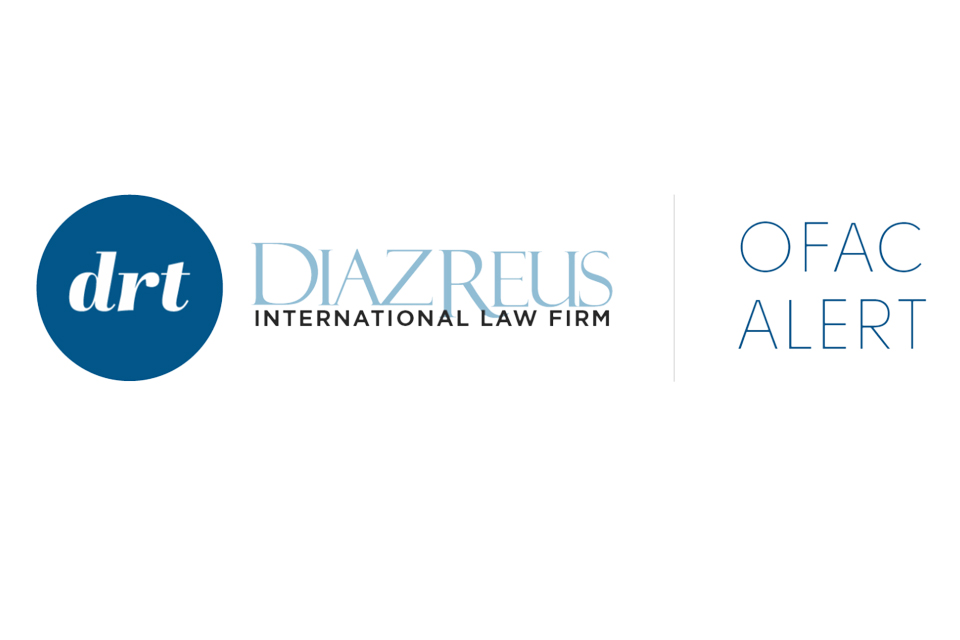On April 21, 2020, the U.S. Treasury Department’s Office of Foreign Assets Control (“OFAC”) issued General License 8F extending the deadline established by General License 8E for Chevron Corporation, Halliburton, Schlumberger Limited, Baker Hughes, and Weatherford International (the “Relevant Entities”) to conduct certain transactions and activities otherwise prohibited under the Venezuela-related Sanctions for the maintenance of operations in Venezuela. Originally, these transactions and activities had to be conducted before April 22, 2020. With General License 8F, OFAC’s authorization is extended through 12:01 a.m. eastern standard time, December 1, 2020, so long as the transactions and activities conducted by the Relevant Entities and their subsidiaries are necessary to the limited maintenance of essential operations, contracts, or other agreements, that (i) are “for safety or the preservation of assets in Venezuela”; (ii) involve Petroleos de Venezuela S.A. (PDVSA) or any entity in which PDVSA owns, directly or indirectly, a 50% or greater interest; and (iii) were in effect prior to July 26, 2019.
The transactions and activities necessary “for safety or the preservation of assets in Venezuela” include: (i) transactions and activities necessary to ensure the safety of personnel, or the integrity of operations and assets in Venezuela; (ii) participation in shareholder and board of directors meetings; (iii) making payments on third-party invoices for transactions and activities authorized by General License 8F, or incurred prior to April 21, 2020, provided such activity was authorized at the time it occurred; (iv) payment of local taxes and purchase of utility services in Venezuela; and (v) payment of salaries for employees and contractors in Venezuela.
General License 8F also authorizes the Relevant Entities and their subsidiaries to conduct all transactions and activities prohibited under the Venezuela-related Sanctions that that are ordinarily incident and necessary to the wind down of operations, contracts, or other agreements in Venezuela that involve PDVSA or any entity in which PDVSA owns, directly or indirectly, a 50% or greater interest, and that were in effect prior to July 26, 2019.
DRT Commentary
Who Should Comply with OFAC Sanctions?
U.S. persons must comply with OFAC Sanctions regardless of where they are located. Foreign persons conducting business in or with the U.S., with U.S. persons, or using U.S. origin goods or services must also comply, because foreign persons that conspire to violate, or cause a violation of, OFAC Sanctions, may face negative consequences.
In fact, OFAC has imposed civil penalties upon foreign persons for, among other activities: (i) purchasing U.S. origin goods with the specific intent of reexporting, transferring, or selling these goods to a person, country, or region subject to OFAC sanctions; (ii) utilizing the U.S. financial system, or processing payments to or through U.S. financial institutions, for commercial transactions involving OFAC sanctioned persons or countries; (iii) using U.S. origin software, or technology and telecommunications hardware located in the U.S.
What are the Consequences of Violating OFAC Sanctions?
U.S. and foreign persons violating OFAC Sanctions may face significant civil penalties, and criminal penalties for willful violations. OFAC may also add the person or entity to its List of Specially Designated Nationals as secondary sanction.
Negative legal consequences are not limited to organizations because the U.S. Government may also target individuals—particularly in supervisory, managerial, or executive-level positions— who have caused or facilitated violations. These individuals may also face migratory sanctions, including future ineligibility to receive a U.S. visa or the revocation of any existing U.S. visa. Additionally, U.S. and foreign persons violating OFAC Sanctions may face collateral consequences, including the loss of international banking privileges, as well as the financial costs associated to defending from legal actions, conducting internal audits and investigations, and enhancing their compliance programs. An organization’s customers and business partners may prefer to deal with other organizations that are not involved in OFAC investigations.
What Can Be Done to Prevent Violations of OFAC Sanctions?
Conduct an OFAC review of any transaction involving sanctioned persons or countries to confirm whether you need OFAC’s authorization. If necessary, request OFAC’s specific license or interpretative guidance before moving forward with the transaction.
Organizations can prevent, detect, and react appropriately to violations of OFAC Sanctions by designing and implementing a Sanctions Compliance Program (SCP). Having an effective SCP in place is also a significant mitigating factor that OFAC will consider when deciding whether to impose sanctions based on an apparent violation of its regulations, or for calculating the appropriate penalty.
Info: Michael Diaz, Jr., Javier Coronado
Tel: +1 (305) 375-9220














